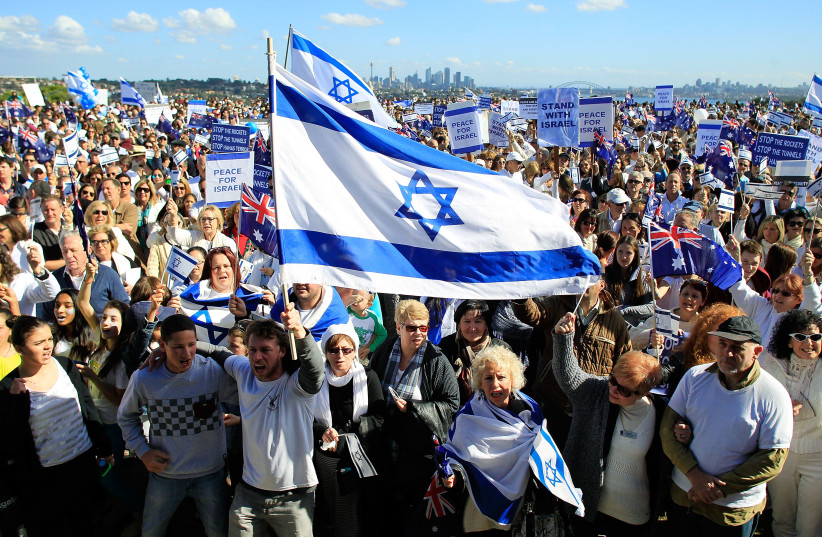Australia’s foreign ministry quietly erased its recognition of the Palestinians’ hope for a capital in east Jerusalem after it reversed its recognition of western Jerusalem as Israel’s capital earlier this week.
The erasure came after media reports that, despite revoking its recognition of part of Jerusalem as Israeli, the Australian Department of Foreign Affairs and Trade (DFAT) website continued to state that “in December 2018, Australia acknowledged the aspirations of the Palestinian people for a future state with its capital in East Jerusalem.”
Australian Foreign Minister Penny Wong defended her government's decision to no longer recognize western Jerusalem as the capital of Israeli in an article for the Australian Jewish News on Thursday.
"I understand that there are few issues more central for many Jewish people than the status of Jerusalem," Wong wrote. "It’s a sensitivity so deep that for the overwhelming majority of the international community, it has remained a final status issue, that should be resolved as part of any peace negotiations between Israel and the Palestinian people."
She accused former prime minister Scott Morrison of only recognizing Jerusalem in an attempt to win a by-election in a district with a large Jewish population.

"The former PM played political games with the hopes and expectations of the Israeli and Palestinian peoples, and their Diaspora communities in Australia," she wrote. "I will always be straight with you, and I won’t use this issue to score points."
Wong expressed regret that reverting her country's position was "distressing" and that the announcement came on the Jewish holiday of Simchat Torah.
Earlier this week, Wong denied media reports that the excision of Australia’s recognition of western Jerusalem as Israel’s capital from the DFAT website indicated a policy change, only to say the opposite the following day without warning.
Wong and DFAT had also denied the change in relation to Jerusalem in private conversations with Israeli officials and Australian Jewish organizations and did not consult or warn them before the reversal.
“Jerusalem is a final status issue that should be resolved as part of any peace negotiations…This reverses the [former prime minister Scott] Morrison Government’s recognition of West Jerusalem as the capital of Israel,” she stated during Simchat Torah on Monday.
The capital of Israel is all of Jerusalem, not just the western part of the city, although that is where the Knesset, Supreme Court and several government ministries are located.
After the US recognized Jerusalem as Israel’s capital in 2017 and opened an embassy there, Guatemala, Honduras and Kosovo followed suit, and several other countries said they would do the same. Until this week, Australia took the same route as Russia, which recognized western Jerusalem as the capital but did not move its embassy from Tel Aviv.
Australia has maintained a trade and defense office in Jerusalem in 2019, which its Ambassador to Israel Paul Griffiths said they plan to keep open.
Prime Minister Yair Lapid, who also serves as foreign minister, said on Monday that the reversal of policy was "a hasty response to an incorrect report in the media," and expressed "hope that the Australian government manages other matters more seriously and professionally."
"Jerusalem is the eternal and united capital of Israel and nothing will change that," Lapid added.
The Israeli Foreign Ministry also summoned the Australian ambassador to Jerusalem on Tuesday for a reprimand following Canberra's zigzag.
